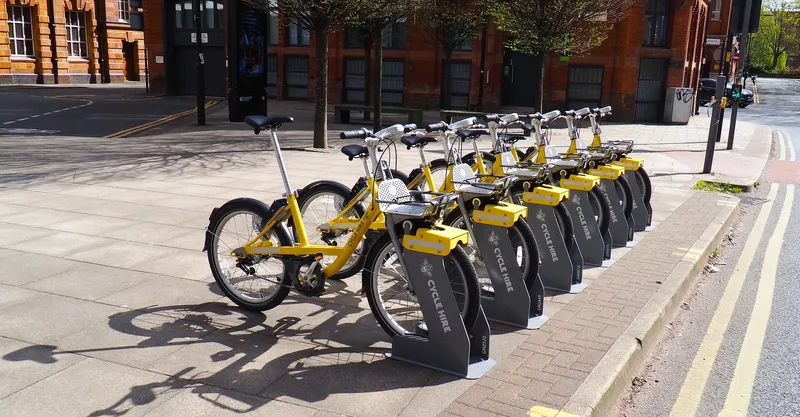
Millions of people in the UK are excluded from cycling due to a lack of cycle parking, according to a report by Sustrans.
The active travel charity says people on a low income or not in employment are hit hardest. Almost a third of those in the report lack somewhere safe and accessible to secure their cycle at home.
Sustrans said that, effectively, 3.7 million people who stand to benefit most from the health and economic benefits of cycling are locked out. This fuels social inequality and leaves people at risk of what Sustrans calls “transport poverty” as the costs of running a car and using public transport continue to rise.
The report, Improving Cycle Parking for People on a Low Income, was based on a survey, Residential Cycle Parking that was funded by Cyclehoop, a creator of cycle parking infrastructure.
It reveals that 5.5 million people on a low income or not in employment would be likely to start cycling, or would cycle more, if they had access to a safe, secure and accessible place to park a cycle.
This is a particularly pressing issue for people living in flats, with only 23% saying they have an accessible place to store a cycle, compared to 58% of people who live in a detached house.
Disparities in access to cycle parking are even starker for many who are currently underrepresented in cycling.
While 32% of people on a low income or not in employment have no secure space to store a cycle at home, this rises to 39% of disabled people and those with a long-term health condition, 34% of women and 36% of people from an ethnic minority background.
Provision of residential cycle parking is a cost-effective solution that could not only tackle a significant barrier and help reduce inequality in cycling, but also boost prosperity, with cycling estimated to contribute £5.4 billion (€6.5 billion) in economic benefits to the UK each year.
Sustrans said it recommends that local authorities increase residential parking provision, prioritising flats and areas of deprivation. Meanwhile, governments across the UK should put in place standards, investment and regulations to improve residential cycle parking. Governments and local authorities should work together to tackle other barriers to cycling for people on a low income or not in employment.
“Relatively small and simple changes, such as providing somewhere secure to keep their cycles, could be transformational for people’s lives and our transport system,” said Xavier Brice, chief executive of Sustrans. “The new UK government has pledged to overhaul transport and tackle inequality. Active travel is at the heart of this and ensuring no one is left behind is vital. This is a key opportunity to break down barriers to cycling and make sure the benefits are available for everyone.”
Sustrans is custodian of the 20,540km National Cycle Network of signed cycle routes throughout the country, including 8,400km of traffic-free paths. The rest of the network is on existing and mostly minor roads in which motor traffic will be encountered.








